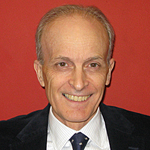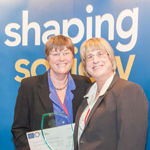Alan Walker is Professor of Social Policy and Social Gerontology at the University of Sheffield, Director of the New Dynamics of Ageing Programme part-funded by the ESRC, the research project Mobilising the Potential of Active Ageing in Europe, and the EU-funded project Social Innovations for an Ageing Population. In 2013 he became the ESRC’s first Impact Champion.

Why did you pursue an academic career?
Becoming a professional social scientist was accidental. I was hooked strongly by sociology and social policy during my undergraduate degree at the University of Essex, and then Peter Townsend offered me a short term post working on his mammoth project Poverty in the United Kingdom.
Working closely with Peter on this and other projects persuaded me that social science had a critical role to play in public policymaking, and I found the prospect of becoming that particular kind of academic very appealing. The twin moral commitments to social science as a vehicle for the promotion of social justice and the duty of academics to speak the truth to power that Townsend exemplified have been the main drivers of my academic career. Continue reading →


